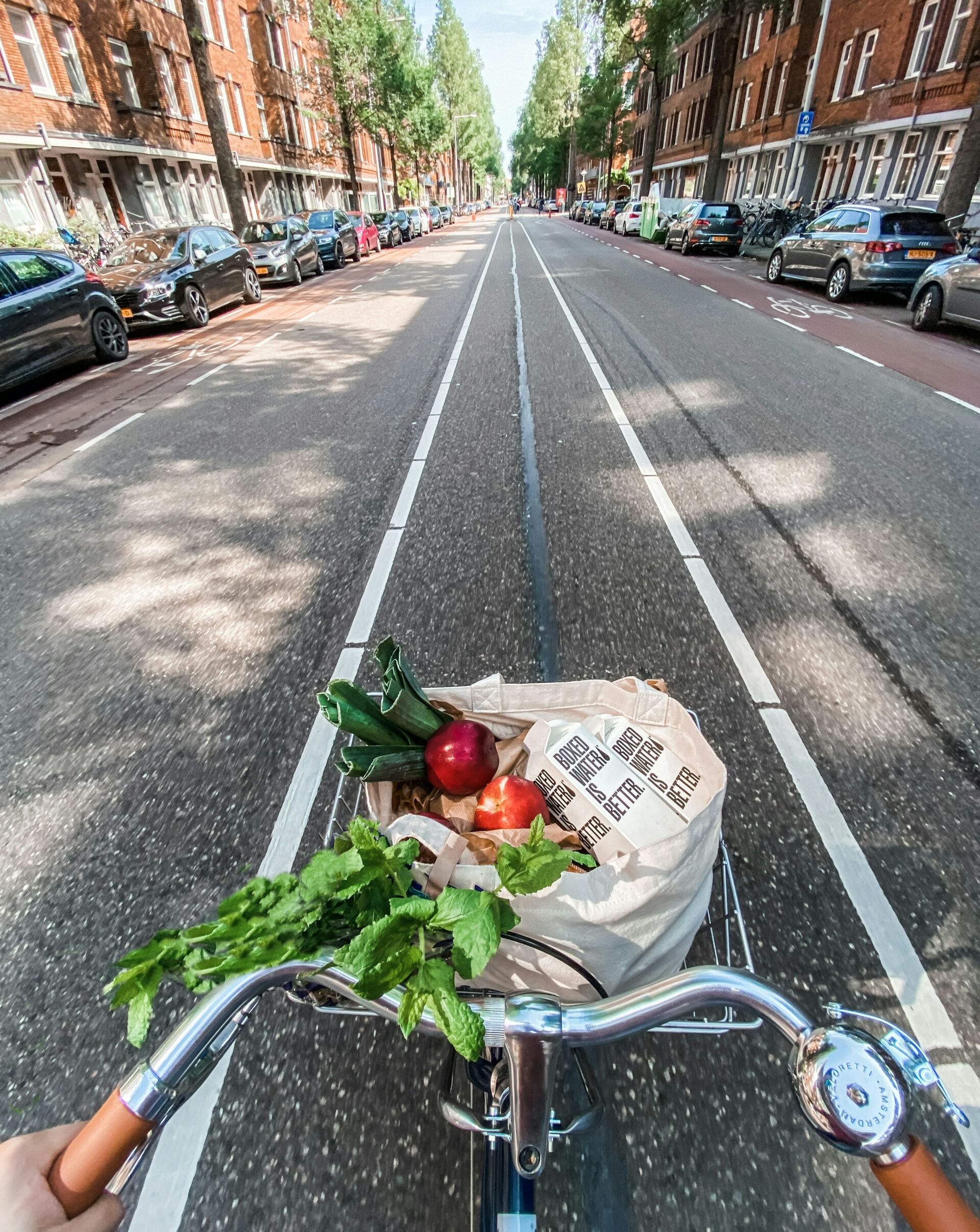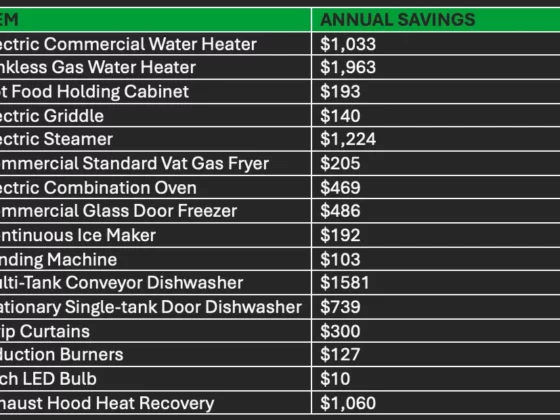Let’s start with the obvious: there is a lot going on in the world today.
In a rapidly changing and increasingly unpredictable global landscape, hotels must find ways to remain competitive and resilient in the long term, even when the realities of tomorrow – let alone five years from now – are far from guaranteed.
While there is no silver bullet to solve the complex global challenges we face today, there are ample opportunities to evolve a hotel’s operations and build a competitive advantage for years to come. Forward-thinking companies understand that embracing sustainability today is key to remaining relevant and adaptable in the face of uncertainty.
The time for transformation in our industry is now. To ensure long-term resilience, we must move beyond business as usual, work collectively toward shared goals, and rethink how we define success. When managed responsibly, tourism can be a powerful tool in uplifting and protecting local Nature, Culture and Community around the world. But if left unchecked, it can overwhelm destinations, displace residents, degrade ecosystems, and endanger the very fabric of local life. With international travel expected to surge over the coming years, collaborative action is required to change the status quo and help ensure that travel is a force for good.
At the same time, traveler expectations are evolving. More travelers than ever before are seeking out sustainable companies that align with their values, including hotels that directly support natural conservation, cultural preservation, and community empowerment in their destinations. Last year, 73% of travelers reported they are more likely to book a property that has sustainability practices in place.
This is especially true amongst Gen Z and millennial travelers, who are increasingly savvy about which hotels are truly ‘walking the walk’ as opposed to ‘talking the talk’ – making greenwashing a particularly damaging reputational risk. The global demand amongst corporate travelers for hotels with sustainability credentials will also continue growing in the years ahead, with more RFPs requiring sustainability data and impact reporting, which promises to further mainstream sustainability throughout the travel industry.
The definition of luxury travel is also shifting, with transformative experiences replacing material goods and excessive consumption as the new social currency. Travelers want to stay in hotels that celebrate local sense of place, natural heritage, and cultural traditions, and they want to have access to unique activities led by community members that also give back.
The Preferred Hotels & Resorts’ 2025 Luxury Travel Report found that 75% of surveyed travelers are not willing to pay for generic accommodation, and over 90% are looking for culturally rich experiences that offer genuine exchange with the places they’re visiting. In short, travelers are looking for hotels that provide more than a place to sleep; they are seeking singular stays, rejuvenation, fresh perspective, and human connection. They also want to know that their trip left a positive ripple effect behind, which is what sustainable tourism delivers.
Whether your hotel is looking to attract more business, increase efficiencies and cut costs, manage risks, prepare for regulatory compliance, adapt to the impacts of climate change, or find new ways to support the well-being of your communities, investing in sustainability is not only ‘the right thing to do’, it is also a pressing business imperative.
Thankfully, there are many real-world examples of hotels that are leading the way, showing how sustainability can help future-proof operations, foster a healthy workplace, and build resilience for all stakeholders. At Beyond Green, a global sustainability leadership portfolio, our members are catalysts for positive change in their destinations, delivering exceptional guest experiences that fuel local impact in action.
While leadership should always be the north star, sustainability itself is a journey because there is no finish line. Rather, it’s about committing to continuous improvement and evolution while daring to do things differently. Letting go of an ‘all or nothing’ mindset empowers hotels to embrace progress over perfection and focus on taking steps in the right direction. There is no better time to embark or advance on this journey than today, and many properties already have a strong foundation for sustainability success.
To start, take stock of where your property is doing well, where there are opportunities for improvement, and any challenges that need to be addressed. From here, you can work with your team to identify low-hanging fruit or ‘quick wins’ that can be accomplished while mapping out an action plan with tangible short and long-term impact goals. People want to be part of solutions and contribute to positive change, so the more you engage staff, guests, and partners in this journey, the farther you will go.
Below are some guidelines to help you get started or continue evolving, complemented by real-world examples from Beyond Green members.
Sustainability is Holistic
Sustainability is a term that is often overused and means different things to different people. In this context, sustainable tourism is about travel that not only treads lightly but also gives back to local destinations and communities by protecting and regenerating nature, safeguarding and celebrating cultural traditions, and empowering local communities and businesses to thrive. It embraces the interconnectedness of local Nature, Culture and Community, which is what it means to go “Beyond Green”. Sustainable tourism is equally relevant and important in all environments – whether urban, rural, on land or by sea – and it is not about giving something up, but about gaining something deeper in return.
Within the Gobi Desert of Mongolia, Three Camel Lodge partners with local nomadic families to offer guests a once-in-a-lifetime opportunity to learn about their cultural traditions and way of life firsthand. The property also supports the revival of the native Mongolian Bankhar dog, which is a point of cultural pride that went into steep decline during the country’s Soviet rule. The hotel has helped breed and reintroduce the dogs to local nomadic herders, where they protect livestock, maintain traditional lifestyles, and support the conservation of the region’s endangered snow leopard; a true sustainability triple-win.
Sustainability is Not a Checklist
While it’s important to prioritize your sustainability efforts, they should not be treated as a checklist to tick off before moving on. To drive true value and impact through your efforts, sustainability and climate action should become the lenses through which you make your business decisions and inform how you measure success. They should also be centered in your business strategy and annual budget. While some initiatives will require up-front investments, many will pay themselves off over time while supporting long-term impact and profitability, so be sure to plan accordingly.
Sustainability has been central to the business and conservation strategy at Post Ranch Inn in Big Sur, California for decades, ensuring that world-class guest stays help protect the region’s iconic natural heritage while supporting the Big Sur community. In 2006, the property launched a Conservation Plan in partnership with the U.S. Fish and Wildlife Service to protect the many species that call the property home, including the California red-legged frog and the critically endangered California condor. In addition to creating a cross-departmental sustainability team, the property also published a Climate Action Playbook outlining its pathway toward achieving Net Zero and providing a climate framework that can be used by other hotels.
Sustainability is Collaborative
The greatest hotel success stories begin by fostering a workplace culture where staff are trained and empowered to create and implement new solutions. Sustainability managers and committees can support these goals by ensuring that efforts are driven and supported across departments and at every level of your company while encouraging leadership amongst your team. Empowered staff members are also powerful ambassadors in communicating your property’s initiatives and impact to guests, inviting them to engage and participate throughout their stay. These efforts also support workforce development and retention, as many younger employees are prioritizing employers that have sustainability initiatives and growth opportunities in place.
Additionally, meaningful collaboration goes beyond hotel walls and extends to your larger sphere of influence. The partnerships you create with responsible suppliers, community organizations, conservation groups, tourism leaders, local government and beyond will expand the reach of your positive impact and can lead to unique and meaningful guest experiences that travelers are looking for. Start by meeting with community partners to identify opportunities for support and collaboration and invite them into your hotel to further foster these relationships. Your hotel can also tap into global industry collaboration regardless of where you’re located. For example, signing the Glasgow Declaration on Climate Action in Tourism and creating a climate action plan is one meaningful step your team can take today.
Created as a model for sustainable hospitality, Coulibri Ridge is celebrated for its self-sufficient design and renewable operations, along with its collaborative community support on the Caribbean island of Dominica. The property helps fund a variety of local non-profits, including Resilient Dominica (REZDM), which is dedicated to helping island communities build climate resilience and prepare for natural disasters. Past projects have included the construction of a new school kitchen that can serve meals to the larger community in the event of natural disasters. An emergency evacuation jetty was also constructed in a nearby local village, which is additionally used by local community members for recreational purposes and tourism.
Sustainability Creates Impactful Stories
Many travel journalists will tell you the word ‘sustainability’ doesn’t generate clicks on its own, but human-centered stories and experiences do. As a hotel investing in this space, it’s important to communicate your efforts with guests through transparent messaging that highlights your efforts through specific and verifiable claims. It’s also important to share stories of the real-world impact of this work and the people making it happen in your community and destination. Travelers want to feel connected, and storytelling has the power to shape the way we see the world and influence the daily decisions we make. Don’t forget to share yours.
At the Parkside Hotel & Spa, opting out of daily housekeeping is good for the environment in more ways than one, with a great story to back it up. For every night that a guest refuses the service, 10 kelp trees are planted in the surrounding seas through a partnership with Veritree, supporting marine restoration efforts that help increase biodiversity, mitigate climate change, and support local communities in British Columbia. Information on the project is presented at check-in, allowing guests to give back through a simple action. Additionally, guests are invited to take guided canoe and city walking tours led by the Lekwungen, known today as the Songhees and Esquimalt People, to learn about local indigenous culture and heritage through their perspective and stories.
Guests of The Brando on French Polynesia’s striking Tetiaroa Atoll are invited to take an immersive behind-the-scenes ‘Green Tour’ that explores the property’s many sustainability highlights ranging from solar panels, to organic gardening and beekeeping, to the property’s innovative Sea Water Air Conditioning system that harnesses cold water from the deep sea to help naturally cool buildings, lower energy consumption, and reduce the hotel’s carbon footprint; a technology that is now utilized in other destinations.
Sustainability is Data-Driven
You’ve likely heard the phrase “you can’t measure what you don’t manage,” and your hotel’s sustainability efforts are no exception. Setting up a platform that enables you to collect data and monitor your hotel’s sustainability performance over time will allow your team to track key metrics across energy, water, carbon emissions, community impact and beyond, set targets, and make real-time operational decisions that can reduce consumption, cut costs, and expand your positive impact. Gathering verifiable data now will also ensure that your hotel is better equipped to navigate the shifting landscape of sustainability regulation, while also strengthening your communications.
Sustainability is Rethinking Plastics
The plastic crisis facing our planet is no secret. 50% of all plastic produced worldwide is single-use, less than 9% of all plastic gets recycled, and some studies show that there will be more plastic in our oceans than fish by 2050, which has devastating effects on local ecosystems and communities. The hospitality industry must do its part to eliminate our reliance on plastics by transitioning to reusable goods and more sustainable materials. While elimination is no easy feat, there are more alternatives on the market today than ever before. Start by auditing your plastics and set up a plan to reduce and eliminate them, beginning with single-use products like water bottles across operations.
At Arenas Del Mar in Costa Rica, single-use plastics in rooms have been eliminated entirely, and bamboo straws – an idea sparked by a hotel gardener who became an entrepreneur – have replaced plastic ones. Glass bottles filled with house-made beverages and partnerships with suppliers to minimize plastic packaging reflect a commitment to thoughtful, low-impact hospitality. Guests are also invited to participate in beach cleanups using bags crafted from repurposed staff uniforms—creating a tangible connection to local communities and conservation efforts.
Bold, ambitious leadership is needed now more than ever, and the hotels that invest in sustainability today are better situated to become the new business leaders of tomorrow. This journey happens one step at a time, so don’t forget to have some fun with the process and celebrate your accomplishments along the way.
While many travelers express a desire to make more sustainable choices, factors like price and convenience often take precedence at the point of booking. That’s why it’s critical for hotels to ensure that sustainability is not positioned as a trade-off, but as an integral part of the overall experience, seamlessly woven into operations, storytelling, and guest engagement.
By offering reliable information and making sustainable options convenient, hotels can help close the gap between intention and action. The transformation of travel requires all of us to lead by example and work together in creating the future we wish to see for our planet and future generations. Onward, forward!
Reprinted from the Hotel Business Review with permission from www.HotelExecutive.com.

















